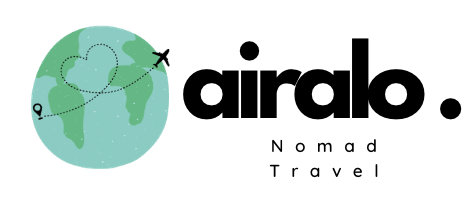
Mexico is a popular destination for Americans, not only because of its geographical proximity, cultural diversity and beautiful natural landscapes, but also because of its relatively flexible visa policy, especially its welcome to foreign jobs. For Americans planning to work in Mexico, it is crucial to know how to apply for a Mexican work visa. This article will detail the steps, required materials, procedures, and other key details for applying for a work visa to help you start your career in Mexico smoothly.
1. Understand the types of Mexican work visas
Work visas in Mexico can be divided into two main types based on the applicant’s length of work and residency plans:
1. Temporary work visa (Visa de Residente Temporal con Permiso para Trabajar)
Temporary work visas are available to foreigners who plan to work in Mexico for a year or less. This visa is particularly suitable for the following categories of people:
- Multinational companies deploy employees: This visa is usually used if your company is transferring you from another country to Mexico for a short-term job.
- Contract workers: You can also apply for a temporary work visa if your job in Mexico is for a fixed period, usually on a short-term contract provided by an employer.
- short-term employment: Such as certain seasonal workers, or people who work during specific projects or activities.
This visa allows the holder to work legally in Mexico, but it is generally valid for one year and can be renewed as needed. When applying, the employer must provide a detailed employment contract and job description to the Mexican Immigration Service to prove that the foreign worker’s work in Mexico meets the needs of the national labor market and will not affect local employment.
In addition, foreigners holding this visa can enjoy certain social benefits in Mexico, such as health care, but do not have the full benefits of permanent residents. Applications for this visa usually require proof of bank deposits or sources of income to prove that you have sufficient funds to support your life in Mexico.
2. Visa de Residente Permanente
If you plan to live in Mexico for a long time and hope to eventually obtain permanent residency, you can apply for a permanent resident visa. This visa is suitable for the following categories of people:
- Foreigners with long-term employment contracts: If you have a long-term work contract in Mexico and your working years have exceeded a certain requirement (usually five years), you can apply for a permanent resident visa.
- Foreigners who meet special conditions: For example, people who have Mexican family members (such as spouses or parents who are Mexican citizens or permanent residents), investors, or people who have long-term business activities in Mexico.
- Long-term residence and work: If you have been working in Mexico for many years and have a stable source of income or investments, a permanent resident visa is also an option.
2. Work visa application process
The process of applying for a Mexican work visa involves multiple steps and relies heavily on the employer’s support and cooperation. Here are more detailed step-by-step instructions:
1. Find job opportunities
The first step in applying for a Mexican work visa is to make sure you find a suitable job in Mexico. In most cases, the employer will act as a sponsor to assist in applying for a work visa. Mexican labor law requires employers to bear certain responsibilities, specifically the employer needs to apply for a work permit for foreign employees (Work Authorization). During this process, the employer must provide a series of supporting documents, including but not limited to:
- Job description: List in detail the specific requirements and responsibilities of the job.
- work contract: Specifies the specific terms and conditions of a job.
- Proof of recruitment needs: Explain why this position is suitable for hiring foreign workers rather than local Mexican workers.
This process ensures that the employer can demonstrate that hiring foreign workers will not adversely affect the Mexican labor market.
2. Application for work permit by employer
After you find a job and reach an agreement with your employer, the employer will need to file a request with the Mexican Immigration Service (National Migration Institute, INM) apply for a work permit. The application process involves several necessary steps and documents:
- employment contract: A formal contract between employer and employee.
- job description: Employers need to provide a detailed description of the position, including job responsibilities, required skills and qualification requirements.
- Business license and tax documents: Prove that the employer is a legally operating company that can provide jobs.
- Recruitment certificate for foreign employees: Sometimes the employer also needs to prove that the recruitment of foreigners is due to the difficulty of filling the position with local personnel.
Immigration will review all documents and decide whether to approve the work permit. If approved, the employer will receive an approval letter as the basis for the next work visa application.
3. Submit work visa application
Once your employer’s work permit is approved, you can submit your work visa application to the Mexican consulate. When applying, you usually need to provide the following documents:
- Passport original and copy: Make sure your passport is valid for long enough, usually at least six months.
- Employer’s work permit: This proves that the employer has obtained permission to legally employ foreigners.
- Copy of work contract: Prove the employment relationship between you and your employer.
- visa application form: Completely completed and signed application form.
- Photos that meet the specifications: The photo must comply with the requirements for Mexican visa application (size, background, etc. requirements).
- Other supporting documents: Such as academic certificates, work experience certificates, professional qualification certificates, etc. If you are a seconded employee of a multinational company, you may also need to provide a company dispatch certificate or an assignment contract.
When submitting materials, the consulate will evaluate whether you meet the Mexican government’s requirements for foreign workers and ensure that your work does not affect the local labor market.
4. Waiting for visa approval
After submitting your complete visa application, the Mexican Consulate will review the materials. Typically, the visa approval process takes several weeks, with processing times depending on the complexity of the application and the consulate’s workload. In some cases, the consulate may require an interview, especially in special circumstances or high-risk industries. After the processing is completed, the consulate will notify you by email or phone whether your visa has been approved.
5. Entering Mexico and completing immigration formalities
Once your work visa is approved, you can travel to Mexico as planned. Upon arrival, you will need to go through immigration formalities and ensure your visa is activated in the immigration system. The specific process is as follows:
- Immigration inspection: At the Mexican port of entry, immigration officials will check your passport and visa to confirm that you can enter legally.
- Apply for temporary residence card: Depending on your visa type, you will apply for a temporary residence card (Temporary Residence Card), this card is proof of your legal residence in Mexico.
- Get a work permit: Once you complete the immigration formalities, you will be issued a work permit (Permit to Work), allowing you to work legally in Mexico. At this time, your employer will also submit the necessary materials to ensure your legal employment status.
3. Required materials
When applying for a Mexico work visa, it is crucial to ensure that you provide complete and compliant documents. The following is a list of materials that must be submitted during the application process and their detailed requirements:
1. Passport
- Original and copy: An original passport valid for at least six months must be provided, along with a copy of the passport. This requirement is to ensure that your stay in Mexico does not exceed the validity of your passport and that it remains valid for the entire duration of your visa application.
- Things to note: The passport must be yours and must not be damaged or altered. If your passport already contains visas or old travel records, make sure these pages are clearly visible.
2. Photos
- Photo dimensions and specifications: The photo needs to meet the standards of the Mexican Immigration Service. Typically, the photo should be45mm x 35mm, and the background is white. The face must be clearly visible in the photo, no glasses or hats should be worn, and facial expressions must be natural.
- Other requirements: The photo must be taken recently, usually within the past six months, to ensure that the appearance is current.
3. Work permit applied for by the employer
- Original and copy of work permit: This material is provided by your employer after applying and being approved by the Mexican Immigration Institute (INM). work permit (Work Authorization) is the key document for you to work legally in Mexico, showing that your employer has applied for a foreign worker permit for you.
- Application materials: When applying for a work permit, employers need to provide the company’s business license, tax registration, company financial reports, employment contracts and other documents to prove the company’s ability to legally employ foreign employees.
- Things to note: Make sure the permit is still valid when you apply for your visa. If your work permit is revoked or expires, your visa application may also be refused.
4. Work contract
- Copy of official work contract: The work contract should be a formal document signed by both the employer and you, clearly listing the job position, work content, salary, work location, employment period and other terms.
- Contract content: The contract should include detailed job descriptions, job responsibilities, working time arrangements, salary payment methods (such as monthly salary, annual salary, etc.), leave system and other benefits, etc.
- special attention: The contract must be duly signed by the employer and a translation into Spanish is required (if the original contract is in another language). The Immigration Bureau will ask to check the authenticity and legality of the contract, so the contract must comply with Mexican labor laws.
5. Educational certificates and work experience
- Education certificate: Depending on the requirements of the job position, you may need to provide relevant academic certificates, such as degree certificates, professional qualification certificates, etc. Especially for positions that require special skills or educational background, proof of academic qualifications is essential.
- Proof of work experience: In addition to academic certificates, the Immigration Bureau may also ask you to provide proof of past work experience, such as employment certification letters, employment certificates, pay stubs or tax returns provided by previous employers. These documents help demonstrate that you have the required work experience and skills for the position you are applying for.
- Translation requirements: If these documents are in a language other than Spanish or English, certified translations are usually required. The Immigration Bureau will require that the translation be consistent with the original document and signed by a professional translator.
6. Other possible supporting documents
- tax certificate: In some cases, the immigration office may ask for a tax certificate from you or your employer to confirm that your work in Mexico will not affect local tax policies.
- criminal background check: In some cases, especially when involving sensitive industries or positions, you may be required to submit a criminal background check to prove that you have no criminal record.
- health certificate: Depending on the visa type and position requirements, some applicants may be required to submit a health certificate to prove that you are physically fit to work.
4. Things to note when applying for a work visa
When applying for a Mexican work visa, in addition to preparing materials and applying according to the process, there are also some important things to pay special attention to:
1. Visa extension
- Temporary work visa extension: If you hold a temporary work visa (Temporary Resident Visa with Permit to Work) and want to continue working in Mexico, you can apply for a visa extension. Typically, temporary work visas are valid for one year and can be extended for up to four years.
- Continuation process: Before your visa expires, you usually need to apply to the Mexican Immigration Bureau for extension about 2 to 3 months in advance. When applying for an extension, you need to submit relevant materials for the original visa (such as passport, work contract, employer’s work permit, etc.) and employer certification documents. If there is no change to your work contract, the Immigration Bureau will decide whether to grant an extension based on the validity of the existing contract.
- Things to note: Make sure to submit your extension application before your visa expires, otherwise you will risk staying illegally and may need to leave the country and reapply for a visa. Extension requests can take longer to be processed, so planning ahead is crucial.
2. Apply together with your family members
- Dependent visa (Visa de Dependiente): If you wish to bring your spouse or children with you to Mexico, they can apply for a dependent visa that allows them to live in Mexico and enjoy certain rights to work or study. A dependent visa is available to the main applicant holding a work visa.
- Application requirements: Applications for subsidiary visas usually require proof of relationship with the main applicant, such as marriage certificates, birth certificates, etc. At the same time, your family must meet Mexican immigration agency health and background check requirements.
- Dependents’ work rights: Spouses and children who obtain a dependent visa can legally reside in Mexico, and in some cases, the spouse can also apply for a work permit. However, children can usually only receive education in Mexico and cannot directly participate in work.
3. Salary requirements
- Salary standard: The Mexican Immigration Service has clear requirements on the salary of foreign employees. Salary levels are required to meet the minimum standards set by Mexico, and the exact amount varies depending on the position, industry and work location. For example, for certain highly skilled positions, the salary standards may be higher, while for general positions, the standards may be lower.
- Salary certificate: When applying for a work visa, employers usually need to provide proof of salary levels to ensure that foreign employees’ salaries meet local minimum wage standards and cost of living requirements. If the salary level does not meet the minimum standards, the Immigration Bureau may reject the visa application or require adjustments to the contract terms.
- tax compliance: When paying wages, employers need to ensure that social security taxes and personal income taxes are paid in accordance with the law. This is not only about employee welfare but also affects visa approval.
4. Health Insurance Requirements
- Mexico health insurance policy: According to Mexican immigration laws, all foreign employees holding work visas must have valid health insurance in Mexico. This is to ensure that you have access to basic medical services and health protection while working in Mexico.
- employer-provided health insurance: Most Mexican employers provide corporate health insurance to their employees, which covers their basic medical needs. If an employer provides health insurance, employees usually do not need to purchase additional private insurance, and the cost of insurance is usually borne by the employer.
- Self-purchased health insurance: If the employer does not provide health insurance, the visa applicant needs to purchase health insurance in Mexico by himself to ensure that he can obtain medical coverage during his stay in Mexico. Coverage should include basic medical care, emergency services, hospitalization and other routine medical needs.
- Special health insurance requirements: Some positions (especially high-risk jobs) may require a higher standard of health insurance. If your job involves greater health risks, USCIS may require a more comprehensive health insurance plan.
5. Frequently Asked Questions
During the process of applying for and holding a Mexico work visa, applicants may encounter some common questions. Knowing the answers to these questions can help ensure a smooth visa application and working life.
1. How long can I work in Mexico?
- Temporary work visa (Visa de Residente Temporal con Permiso para Trabajar): This visa is usually valid for 1 year but can be extended to up to 4 years depending on the type of job, position and the length of the employment contract. The specific validity period of the visa is determined by the Mexican Immigration Bureau based on your specific circumstances (such as the length of the work contract, the requirements of the position, etc.).
- Permanent work visa (Visa de Residente Permanente): If you plan to live and work in Mexico for a long time, you can apply for a permanent work visa. Those holding permanent visas generally have unlimited permission to live and work as long as they do not violate Mexican immigration regulations or engage in illegal activity. Generally, only foreigners who have worked in Mexico for many years and have long-term stable employment, or foreigners who have obtained Mexican citizenship, can apply for a permanent work visa.
2. What if my employer does not apply for a work permit?
- Employer’s legal responsibilities: Under Mexico’s immigration laws, all employers who wish to hire foreign employees are responsible for applying for work permits for their employees. This requirement applies to all foreign employees, whether on a temporary or permanent work visa. Without a work permit, you cannot legally work in Mexico and may risk deportation.
- Solutions: If you find that your employer has not applied for a work permit for you, you should first communicate with the employer as early as possible to remind them of this legal responsibility. You can ask them if they have submitted the relevant work permit application and confirm the progress of the application. If your employer refuses to apply for a license for you, or delays processing, you have the right to seek legal help or even change jobs. However, you cannot legally work in Mexico until your employer processes a permit.
- Important reminder: Working without a legal work permit may result in a visa application being denied or future work visa applications being restricted.
3. Can I switch jobs in Mexico?
- Job transfer regulations: If you hold a work visa in Mexico, you can theoretically change jobs, but you need to meet some specific conditions.
- Notify Immigration: When you decide to change jobs, you first need to notify Mexico’s immigration authorities and update your work visa information. This is because the Mexican Immigration Service will re-evaluate your visa eligibility based on your new employer and work contract.
- Work permit for new employer: In order to change jobs, your new employer needs to apply for a work permit for you and submit the relevant work contract and supporting documents. If your new employer agrees to provide you with a work permit and the Immigration Bureau approves it, you can legally change jobs and continue to work in Mexico.
- Things to note about the conversion process: While you are waiting for your new work permit to be approved, you may not be able to start your new job right away. During this period, without a work permit, you will be in “non-working” status, which may affect your visa status, so it is important to plan the transition in advance to avoid any legal issues.
in conclusion
Although applying for a work visa as an American in Mexico involves a series of complicated steps, as long as you understand and follow the correct procedures, you can successfully obtain legal work status. Understanding the two main types of work visas—temporary work visas and permanent resident work visas—can help you choose the right one for your plans. The cooperation of the employer is crucial during the application process. They not only need to provide a work contract and job description, but also bear the responsibility of applying for a work permit from the Mexican Immigration Service. In addition, preparing complete application materials and ensuring that all regulations are followed can greatly increase the chances of visa approval.
Whether you plan to work for a short period of time or hope to settle in Mexico long-term, submitting your extension application on time or applying for dependent visas for your family will make your career in Mexico smoother. In general, understanding and properly planning all visa application details in advance will not only save you time, but also ensure that you can work and live legally in Mexico and enjoy more stable career opportunities.





